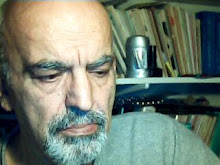Subsidies, or no subsidies, this is not the question...
Despite the fact that liquidity in the economy has increased substantially in the past two years, this report claims that many factories are at the point of total closure for not having enough cash to purchase raw materials. It adds that the banking sector refuses to lend them money, hence, private sector is effectively loosing its productive capacity. It is futher revealed that the shortage of raw material is quite serious, 80% and suggests that the government should withdraw sufficient sum from the foreign currency fund and make it available to the private sector, so that this sector could buy the necessary raw materials. I have said this on many occasions that in Iran, we face a very strange situation. For many if the government subsidises the private sector, that would be fine. And yet, it is the same group of people who have deriven everybody mad by their repeated and to a large extend unsubstantiated claims against the government subsidies on petrol, bread, cooking oil, gas etc. In short, what you notice here is an excellent example of double standard...

